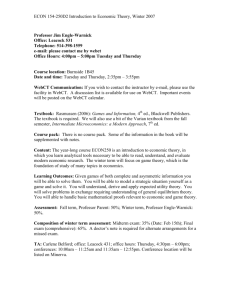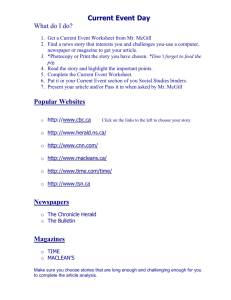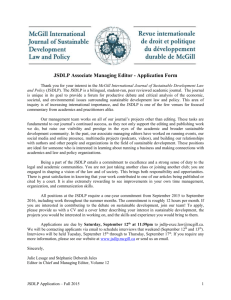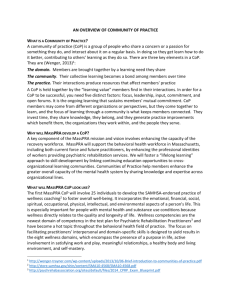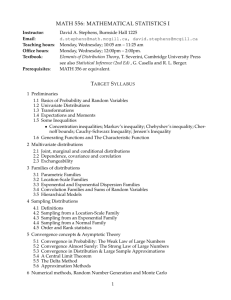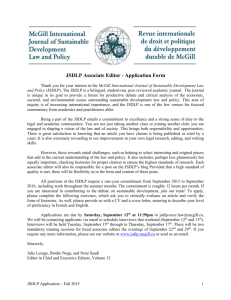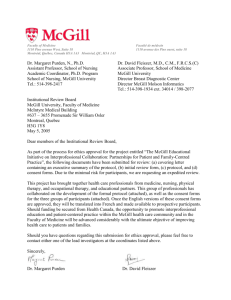Using WebCT to Support Community of Practice Learning at McGill
advertisement
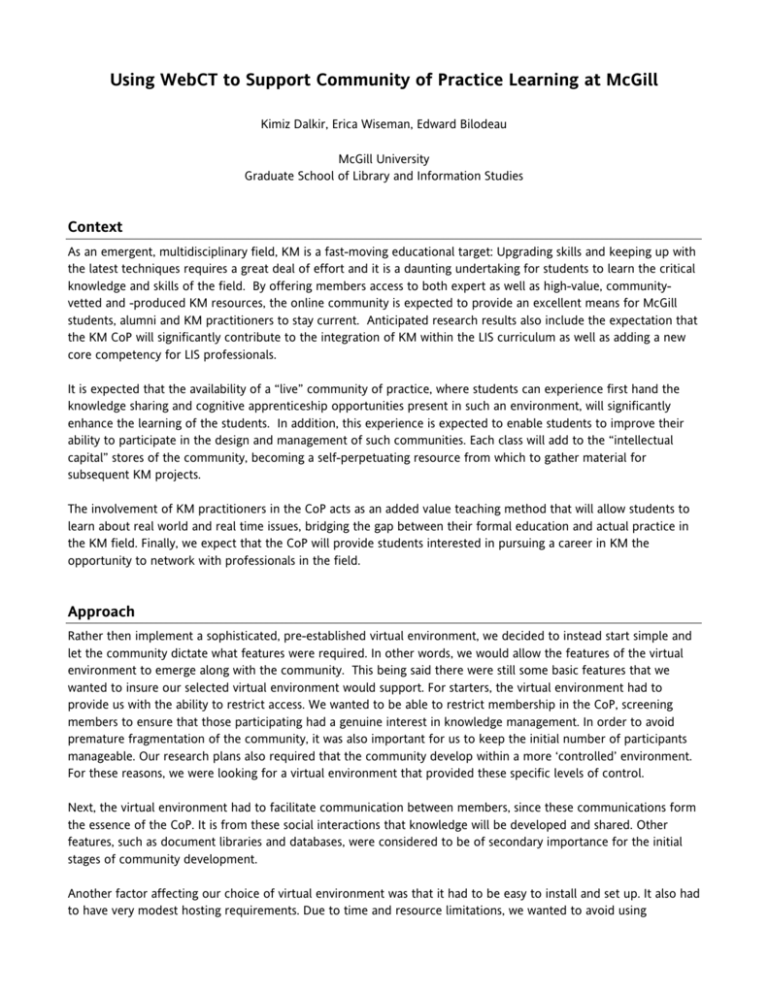
Using WebCT to Support Community of Practice Learning at McGill Kimiz Dalkir, Erica Wiseman, Edward Bilodeau McGill University Graduate School of Library and Information Studies Context As an emergent, multidisciplinary field, KM is a fast-moving educational target: Upgrading skills and keeping up with the latest techniques requires a great deal of effort and it is a daunting undertaking for students to learn the critical knowledge and skills of the field. By offering members access to both expert as well as high-value, communityvetted and -produced KM resources, the online community is expected to provide an excellent means for McGill students, alumni and KM practitioners to stay current. Anticipated research results also include the expectation that the KM CoP will significantly contribute to the integration of KM within the LIS curriculum as well as adding a new core competency for LIS professionals. It is expected that the availability of a “live” community of practice, where students can experience first hand the knowledge sharing and cognitive apprenticeship opportunities present in such an environment, will significantly enhance the learning of the students. In addition, this experience is expected to enable students to improve their ability to participate in the design and management of such communities. Each class will add to the “intellectual capital” stores of the community, becoming a self-perpetuating resource from which to gather material for subsequent KM projects. The involvement of KM practitioners in the CoP acts as an added value teaching method that will allow students to learn about real world and real time issues, bridging the gap between their formal education and actual practice in the KM field. Finally, we expect that the CoP will provide students interested in pursuing a career in KM the opportunity to network with professionals in the field. Approach Rather then implement a sophisticated, pre-established virtual environment, we decided to instead start simple and let the community dictate what features were required. In other words, we would allow the features of the virtual environment to emerge along with the community. This being said there were still some basic features that we wanted to insure our selected virtual environment would support. For starters, the virtual environment had to provide us with the ability to restrict access. We wanted to be able to restrict membership in the CoP, screening members to ensure that those participating had a genuine interest in knowledge management. In order to avoid premature fragmentation of the community, it was also important for us to keep the initial number of participants manageable. Our research plans also required that the community develop within a more ‘controlled’ environment. For these reasons, we were looking for a virtual environment that provided these specific levels of control. Next, the virtual environment had to facilitate communication between members, since these communications form the essence of the CoP. It is from these social interactions that knowledge will be developed and shared. Other features, such as document libraries and databases, were considered to be of secondary importance for the initial stages of community development. Another factor affecting our choice of virtual environment was that it had to be easy to install and set up. It also had to have very modest hosting requirements. Due to time and resource limitations, we wanted to avoid using technology that would require us to purchase additional hardware or software. After evaluating several software packages, we opted to host the KM CoP as a site within McGill’s WebCT environment. Although McGill uses WebCT primarily to support the university’s credit courses, McGill’s internal support group was open to WebCT being used to host other types of initiatives. WebCT provides us with a closed environment that makes available all the basic communication features expected in a virtual environment: discussion groups, chat rooms, e-mail, and member profile pages. Administrators can also add documents and other electronic resources to the environment, a feature that will become increasingly important as the community matures and begins to produce its own knowledge artefacts. WebCT also offers us several additional benefits. First, the WebCT system is already in place at McGill, and is maintained by NCS. Given this fact, we were able to create and configure the virtual environment using functionality we were familiar with. Second, most students are already familiar with the WebCT user interface. This allows us to believe that they should be able to participate in the CoP with a minimum amount of training. Finally, other groups on campus (or at other institutions that uses WebCT or any equivalent system, for that matter) who want to start a CoP following our lead with be able to do so with relatively few technical hurdles. Innovative Aspects The primary objective of the KM CoP is to provide value for its membership. This will be accomplished in a number of ways. First, the KM CoP will act as a new channel connecting KM practitioners and students in order to enable action learning and experience sharing. The presence of a vibrant and interested practitioner community allows a unique opportunity to support student learning with real business problems. Second, the KM CoP will create, organize and evaluate knowledge management content of interest and make it available in “useable” forms. The objective is not just to disseminate information “à la portal”, but to provide actively managed framework dedicated to the organization, explicit coding, structuring, and updating of both content and connections. All content will be vetted, vouched for as stemming from a credible source and annotated for ease of reuse. Finally, the KM CoP will provide an innovative environment characterized by continuous growth and development together with regular intake of new students to create a highly diverse group of interacting community members: academics, business practitioners, KM experts, KM researchers and KM students. The use of communities of practice to as an informal, applied learning environment that complements more formal educational channels is an emergent research theme. In addition, the exploration of WebCT or similar learning management systems that are fairly prevalent in most universities represents a novel approach to implementing such complementary learning environments. Joining KMCoP, More Information, etc website: http://www.kmcop.mcgill.ca email: Kimiz.Dalkir@mcgill.ca Erica.Wiseman@mail.mcgill.ca Edward.Bilodeau@mcgill.ca
